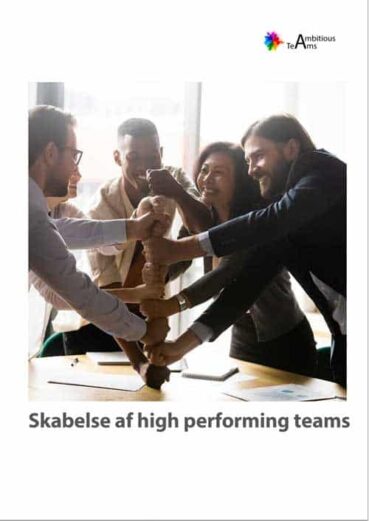Illusory superiority is a cognitive bias, i.e. a we-are-fantastic-self-image that can be considered a possible trap for any team. In social psychological terms, the term refers to the fact that a team may tend to overestimate its own strengths and competences in comparison with other teams. Now you might appropriately ask yourself whether your own team sometimes gets a touch too high on itself?
In the day-to-day work with your teammates, everyone has an opinion about what's right and wrong, because everyone is convinced they're going in the right direction. If you fall into uttering phrases like "We're always right in our team", "We lift the whole organisation", "Without us it would all fall apart", then you're caught with both feet in the illusion of superiority. In these cases, you may hear an inner alarm bell telling you that right now is a good time to adopt a more mature self-understanding on a team level. You are, in fact, overestimating yourself.
You must listen with curiosity to your own statements, especially your self-justifications, your cowering at your own doors, and your denigration of others in the organization. In these cases your team ego is most likely filling up the whole room. It may look appealing from your side, but others have a different experience. The effect, in fact, is that your self-idolising steals the light from those outside the team. And the natural consequence is that people don't thrive in your presence. Then reflect on how your behaviour could have been differently respectful towards outside colleagues. You need to couple the alarm bell, so to speak, with positive action and a mature expression.
The team becomes convinced that its unique talent is real, that its skills are exceptional not only in sales but in all the other areas about which the team now speaks. The self-absorbtion leads to believe that the talent is wide and broad.
The team learns that its talent is a given as a birth right, and that without great effort, focus and preparation the team can master any challenge. The conviction thus sets in that effort and diligence are the lot of all the those who have not received the special baptismal gift of knowing everything in advance and doing everything with ease.
The team may also learn that it must reward others with shame and misguided motivation. The lost praise becomes the way forward, and inauthenticity in relationships is the unconsciously entrenched goal.
...that each person in your team is prepared to face themselves, their own shadow sides.
...that there is safety in the process, when people wake up to a new world.
... that the feedback you give each other doesn't just happen one day, but continues on a daily basis, integrated into new habits that everyone can vouch for.
...that the developmental feedback rests on a broad and secure platform of appreciative feedback, given regularly.

Lorem ipsum dolor sit amet, consectetur adipiscing elit. Ut elit tellus, luctus nec ullamcorper mattis, pulvinar dapibus leo.